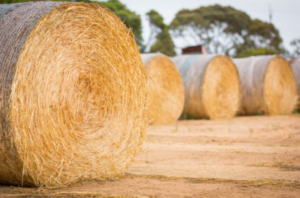Natural fibre baling twine is a popular choice for farmers. It’s durable, biodegradable and doesn’t contribute to pollution in landfills.
It’s rot and mildew-resistant, making it perfect for outdoor storage. It works flawlessly with square baler machinery and is treated to repel rodents.
It can be found in various colours and sizes, depending on each farmer’s needs. Buy quality natural fiber baling twine here now.
Durability
 A dependable twine is essential for the modern farmer. Non-biodegradable plastic twine left in round bales of hay can tangle around cattle’s heads, legs and hooves, causing severe injury or death. Ingestion of this twine can also cause digestive problems. That is why sisal twine is the preferred choice for all cattle farmers.
A dependable twine is essential for the modern farmer. Non-biodegradable plastic twine left in round bales of hay can tangle around cattle’s heads, legs and hooves, causing severe injury or death. Ingestion of this twine can also cause digestive problems. That is why sisal twine is the preferred choice for all cattle farmers.
Unlike poly twine, natural twine is digestible and tangles less easily. It is also more affordable than plastic twine, which makes it the better option for long-term investment in your farm.
While most people wouldn’t consider hoarding twine, horse people certainly do. It has endless uses, ranging from the utilitarian to the creative. Besides being used by bales, it is commonly used to tie wire tree baskets and for general tying needs. It can even help you train plants and vines to grow in specific directions. You can also use it for various crafts and garden tasks, such as sewing springs or buttons onto old clothes.
Biodegradability
The baling twine that binds hay or straw bales is critical for farmers and agricultural businesses. Using quality twine that won’t harm the environment or damage machinery is essential, and natural fibre twine is an excellent choice.
Bailing twine is biodegradable, so it doesn’t contribute to landfill waste and doesn’t clog sewers. It also makes for a great alternative to plastic bailing twine, which can harm animals and cause environmental harm.
Natural sisal baling twine works flawlessly with all square and round baler equipment and is treated to resist rot, mildew, and rodents. It’s also knotless for easy installation and possesses high tensile strength. Some farmers use a unique feed management strategy by using small, round bales bound with twine and leaving them in the field for livestock to graze through the winter. This approach helps reduce field compaction and improves spring regrowth.
Recyclability
Unlike synthetic twine, natural fibre baling twine can be recycled. Montana has a Twine Collection and Recycling Site in Laurel where you can safely dispose of your old twine. However, there needs to be more information available regarding this process.
Inadequately disposed of baling twine can harm the environment. It lingers in the soil and water and can entangle wildlife. It can also contaminate equipment, cause fire hazards, and present a trip hazard for livestock and humans.
It is essential to consider reusing or recycling baling twine when possible, as it does not decompose quickly and may pose safety risks. Livestock can accidentally ingest twine while eating, leading to digestive problems or choking. Twine can also become a tripping hazard and get tangled in machinery, creating dangerous situations for livestock and humans. It is also recommended that farmers explore alternatives to baling twine, such as net wrap, which can reduce harvest loss. Buy quality natural fiber baling twine here now.
Creative Uses
Twine is used for various tasks and is a versatile natural product. It has many uses in arts and crafts, such as embroidery and knitting, as well as in upholstery, rug-making, agriculture, and the cotton industry. It can be made from various natural fibres, including sisal, jute, hemp and hessian.
Jute baler twine is treated to resist rot, mildew and rodents. It is strong enough to work flawlessly in square baler machinery and provides consistent baling results. It is biodegradable and doesn’t contribute to landfill waste or clog sewers.
A discussion on the EquiSearch Horses Forum revealed that some horse people hoard baling twine. It is a handy accessory that has as many uses as duct tape!